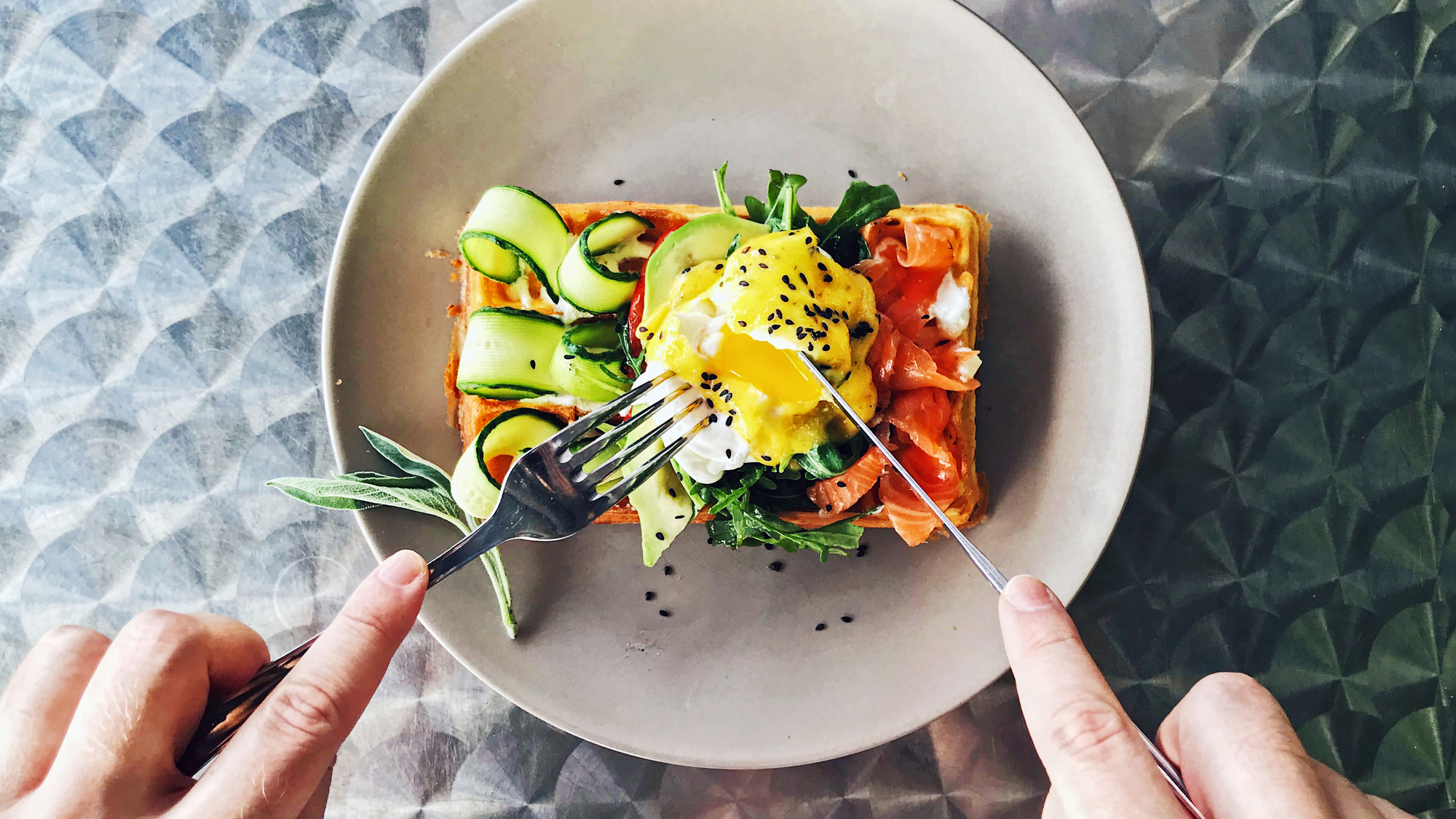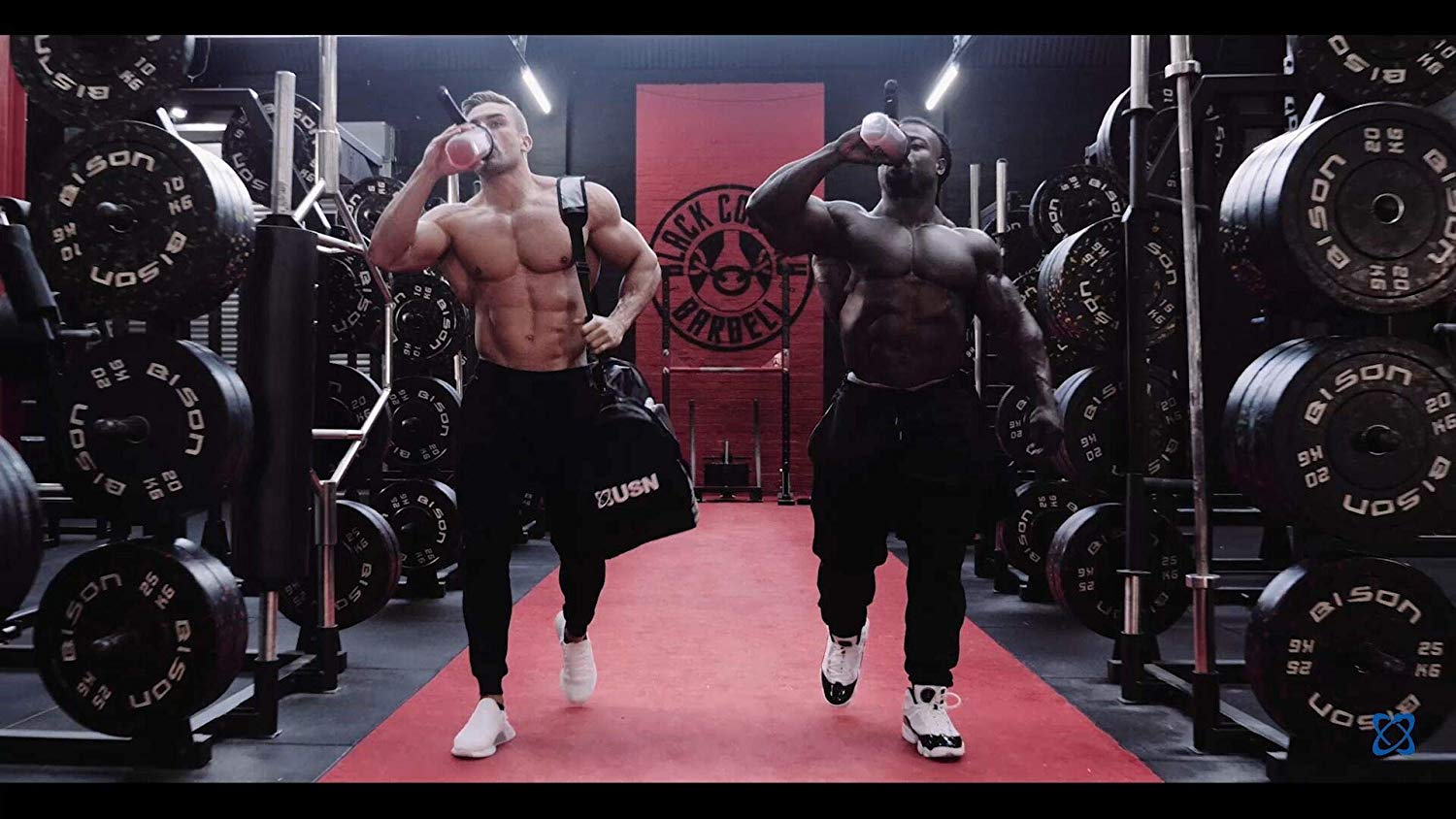Does protein make you gain weight?
Let's bust some myths about protein



Protein powders have a terrible reputation. Well, not necessarily bad, but the public's image of protein supplements is indeed distorted, to say the least. It's often thought that protein powders are full of additives, are bad for health, and might even cause weight gain. Are these urban myths true?
There is a lot to unpack here. First of all, what is protein? Dietary protein is one of the three main macronutrients the body needs to function. All of them are important, but protein is essential for muscle recovery, among other functions. Hence, the best protein powders are so popular among bodybuilders.
This is the same reason why many people associate protein with muscle building only. However, protein alone won't give you big muscles. You need to consume a lot of protein from various sources and work out with weights frequently for muscles to grow, and even then, they will probably never get as big as you think they might.
- Related:
- Get fit for 2022 - T3's best workout and diet tips to help you get in shape this year
- Top fitness trends to shape home workouts in 2022 and beyond
- 10 best no-jump exercises for a flat-friendly full-body workout
Can protein help you lose weight?
Protein is recommended for muscle recovery after any exercise. Runners and cyclists often consume protein shakes or have a quick protein bar after training to help their muscles get back on their feet, so to say. And if you ever saw long-distance runners and cyclists, you know they aren't big people.
So, does this mean protein won't make you gain weight? As a matter of fact, protein can help people lose weight. Protein is considerably low in calories (1 gram of protein is around 4 calories), and protein-rich food will make you feel fuller for longer. Consuming fatty foods have a similar effect, but fat has a much higher calorie content (around 9 calories per gram).
Protein shakes are generally low in calories, making them an ideal snack for people trying to lose belly fat. A serving of protein powder contains around 100-120 calories when mixed with water and is made mainly of protein. This is why bodybuilders prefer protein shakes; they can fine-tune their diet and protein consumption.

How not to gain weight using protein
How come some people put on weight when drinking protein shakes? Many people will add extra protein shakes to their diets without removing unhealthy snacks, which might be why they don't see weight loss results.
Get all the latest news, reviews, deals and buying guides on gorgeous tech, home and active products from the T3 experts
When additional protein is consumed, and that isn't needed for muscle recovery/maintenance, it will be used as energy and can potentially be stored as fat in the body.
If you want to lose weight using protein, you must match the intake with physical exercise so your body can utilise the macronutrient for what it's for. This doesn't have to be strength training, but admittedly, long term weight loss is only possible if you increase your basal metabolic rate; adding extra muscle mass is a great way to do that healthily.
To reiterate, we aren't talking about professional bodybuilder-level muscle mass, only more muscle than an average person has.
Can protein help you gain healthy weight?
As we already discussed, protein supplements are often used in bodybuilding circles. Considering how big those people are, protein powder surely can help you gain weight and bulk up. Under the right circumstances, it certainly can.
Protein can build mass by helping your muscles recover properly after resistance training. You see, when they are put under tension, microscopic tears appear in muscles. Protein can help patch these tears up, leaving muscles slightly bigger so they are ready for a similar event in the future.
After a long period of frequent resistance training sessions, this process can result in noticeable muscle growth. The way to gain weight is to have good training and a decent diet plan in place. Not to mention, allowing your body to recover. If you are one of those people who struggle to put on weight, you can try mass gainers; these are high-calorie protein supplements for so-called hard gainers.

Does protein make you gain weight?
Protein can help you gain and lose weight easier, depending on your fitness goal. It can only do either of those things if your increased protein consumption is part of a healthy diet plan. Just drinking an extra protein shake a day won't cut it.
You should have protein from a variety of sources and not just protein powder. Both animal and plant-based protein are available in abundance, including organic poultry, tofu, leafy greens, beans and so on. Mix things up and monitor your intake so you don't go too overboard.
And whatever your weight goal is, make sure you exercise accordingly so you can reach it sooner. Here are some workouts for inspiration: best full-body workout, best HIIT workout, best kettlebell workout and best push-pull-legs exercise routine.
This feature is part of T3's Get Fit 2022 campaign. We’ll be bringing you a wealth of guides, features, deals and news to help you get healthy, fit and ready for anything the new year can throw at you. Whether you’re a newcomer to fitness or someone with a passion for it, we’ll bring you all the best workouts, diet advice and gear to set you on the right track.

Matt Kollat is a journalist and content creator who works for T3.com and its magazine counterpart as an Active Editor. His areas of expertise include wearables, drones, fitness equipment, nutrition and outdoor gear. He joined T3 in 2019. His byline appears in several publications, including Techradar and Fit&Well, and more. Matt also collaborated with other content creators (e.g. Garage Gym Reviews) and judged many awards, such as the European Specialist Sports Nutrition Alliance's ESSNawards. When he isn't working out, running or cycling, you'll find him roaming the countryside and trying out new podcasting and content creation equipment.
